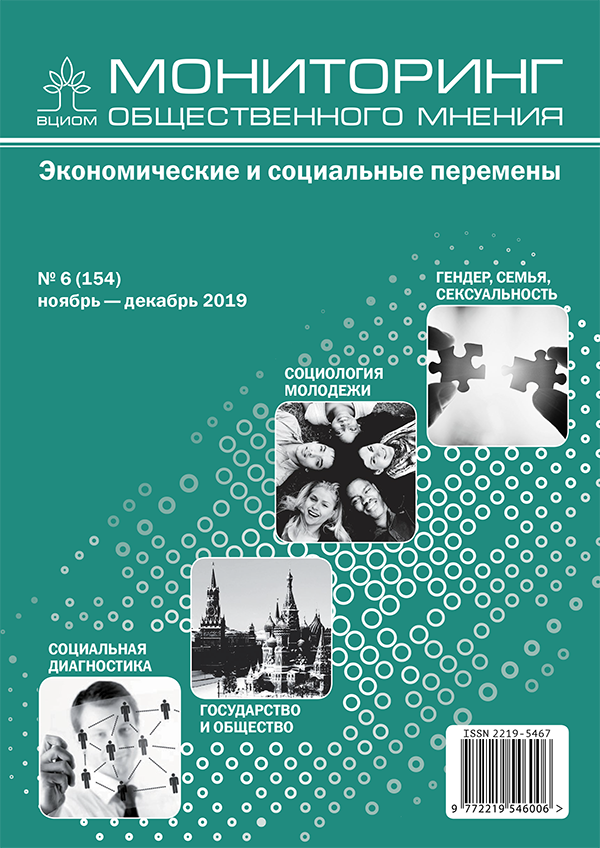Is It Easy for Disabled People to Find a Job in Moscow?
DOI:
https://doi.org/10.14515/monitoring.2019.6.17Keywords:
people with disabilities, employment, labor market, MoscowAbstract
By ratifying the UN Convention on the Rights of Persons with Disabilities, Russia has committed to providing its citizens who have severe medical problems with productive employment. The country approved the key papers with target indicators concerning the employment of people with disabilities at similar levels to developed nations. But will the Russian government be capable of embodying the plan given a very low starting point? The article provides the results of a large-scale study devoted to the employment challenges the disabled persons face in the labor market. The research tools included a survey of disabled Muscovites with all eight types of body dysfunctions, a series of expert interviews with four groups of experts, an analysis of mass media content and online resources. The study shows that the disabled persons of all ages (especially in middle or pre-retirement age) are interested to get a job; however, even in Moscow, with all its financial capacities and well- developed labor market, they find it extremely hard to be hired. This is particularly true for the severely disabled Muscovites, for example, those who are wheelchair users, developmentally impaired, mentally disabled or visually impaired. At the same time, the disabled persons from a lighter disability groups prefer to work in the shadows, not willing to lose their Moscow’s disability pension supplement and their right to get rehabilitation equipment for free. Other obstacles hampering the employment of the disabled persons are as follows: loopholes in the implementation of a more accessible urban environment; archaic style and poor coordination in the work of social security medical assessment board; introduction of inclusive education not well thought-out; low effectiveness of the employment quota system; lack of support from specialized enterprises. The authors assume that the findings go far beyond the region under consideration: the problems of Moscow, flourishing enough, may well be typical of the Russian province.






